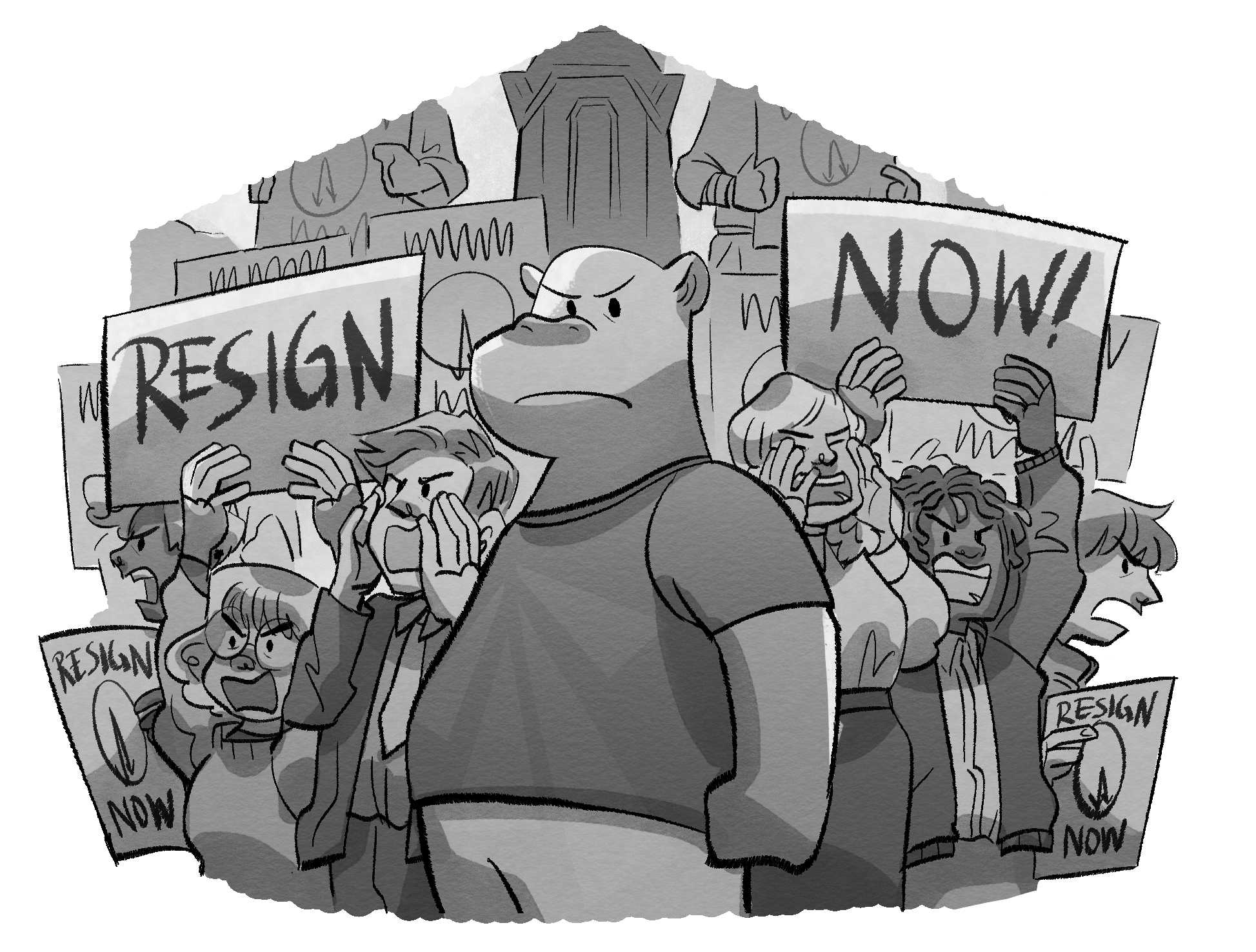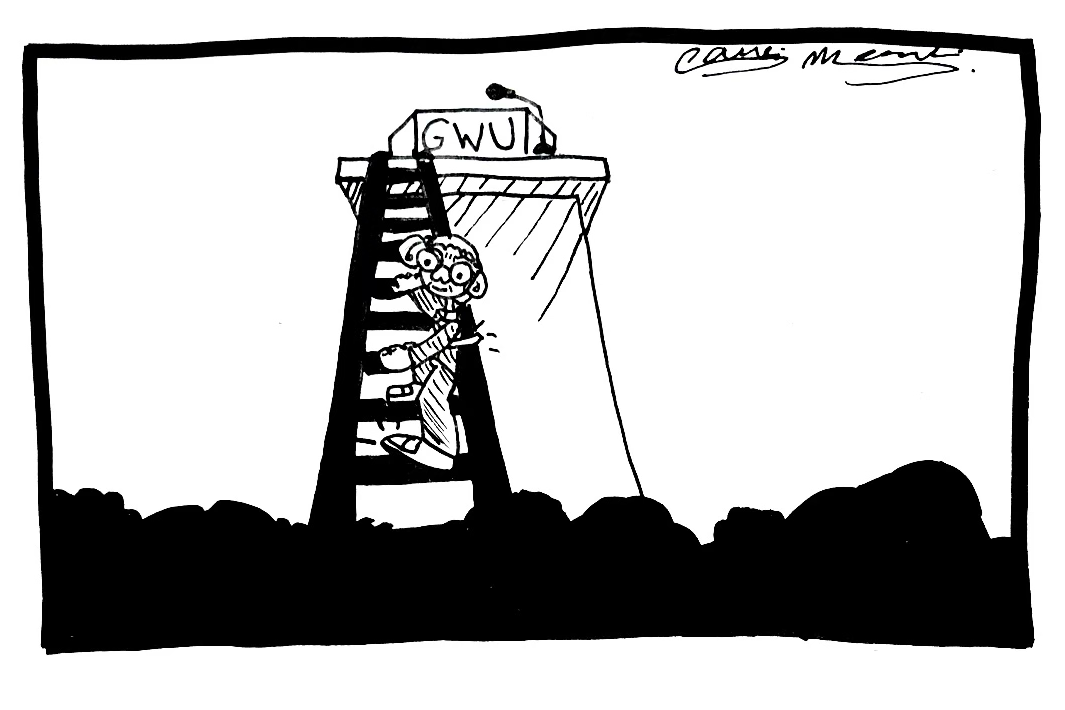More than 100 faculty members want University President Thomas LeBlanc to resign. We agree.
Members of the Faculty Association outlined a laundry list of reasons why LeBlanc should step down, ranging from his 20/30 Plan that devalues humanities and social science departments to the insensitive analogy caught on video last month. But criticism of LeBlanc and his administration since he stepped in is not new – faculty have been complaining that he does not belong at GW before he even got started.

Jeanne Franchesca Dela Cruz | Cartoonist
LeBlanc is and has been moving the University in the wrong direction, and his insensitive comment was the last straw. He has shamed students for speaking out about a poor choice for Commencement speaker, ignored faculty concerns over a costly partnership with the Disney Institute and has confirmed the worries professors shared during his hiring process. LeBlanc was not the right fit in the first place, and he should resign.
The backlash began in 2016, a year before LeBlanc took charge. Faculty criticized administrators for the lack of diversity and representation of humanities professors on the presidential search committee. At the time, faculty were concerned that the Board of Trustees was pushing an agenda that was out of touch with some professors and that hiring another white man to head the University would disregard the diversity officials are striving for. LeBlanc’s short tenure proves they were right.
In LeBlanc’s first year, he was openly contemptuous toward the student body, criticizing students’ response over the National Academy of Sciences President Marcia McNutt being named Commencement speaker that year. Campus was rocked by a racist Snapchat post the same year, and LeBlanc’s lackluster response was a red flag. Although the University rolled out a plan to address future incidents, the sorority involved with the post did not face many consequences despite demands from student leaders.
The next year, LeBlanc told students not to worry about securing an internship even though internships are one of GW’s biggest draws. He also created a partnership with the Disney Institute in his second year to improve institutional culture, but many professors were not pleased with the plan. Despite their criticism, he chose to extend the partnership. His disregard for student and faculty input raises questions about his priorities and whether he truly values feedback.
Most recently, LeBlanc has come under fire for his 20/30 plan, which is projected to decrease diversity and harm humanities departments. He also decided to nix fixed tuition, which could make GW less affordable and turn away low-income students. LeBlanc also rolled out the next strategic planning process in his third year, but it does not emphasize one of the biggest topics of our generation: sustainability.
Throughout his time leading GW, LeBlanc has also made questionable hiring decisions and has struggled to maintain stability among the University’s top leadership. LeBlanc’s tenure at GW has included high administrative turnover and a slew of hires from the University of Miami – the school where LeBlanc previously served.
The Hatchet’s editorial board has closely kept track of these instances in the past couple of years and has been among LeBlanc’s biggest critics at GW. LeBlanc’s plan for the future of the University and his past mistakes are out of touch with students and faculty. While his most recent remark about fossil fuel divestment in itself may not be enough to ask for his resignation, it added onto a pile of instances in which he did not show respect for students or faculty.
University presidents tend to resign over major scandals. Then University of Missouri President Tim Wolfe resigned over his handling of racist incidents on campus in 2015. Then Michigan State interim president John Engler stepped down from his post after saying that the sexual assault victims of a university physician were enjoying the spotlight that the assault brought them.
Although LeBlanc has not endured a tenure like these presidents, there is one large overarching issue that warrants his resignation. He was not the right fit for GW before he even got here. His repeated struggles to move the University in the right direction and listen to students and faculty are reasons enough for him to leave GW.
The editorial board is composed of Hatchet staff members and operates separately from the newsroom. This week’s piece was written by opinions editor Kiran Hoeffner-Shah and contributing opinions editor Hannah Thacker based on conversations with The Hatchet’s editorial board, which is composed of copy editor Natalie Prieb, managing director Leah Potter, design editor Olivia Columbus, sports editor Emily Maise and culture editor Sidney Lee.



